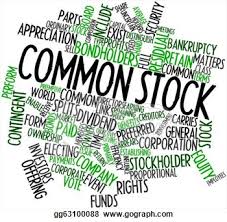The valuation of common stock is somewhat different from the valuation of bonds and
preferred stock. Common stock valuation is complicated by the fact that common stock
dividends are difficult to predict compared with the interest and principal payments on
a bond or dividends on preferred stock. Indeed corporations may pay common stock
dividends irregularly or not pay dividends at all. Moreover, because owners of more than
50 percent of a corporation’s stock have control over the affairs of the business and can
force their will, the value of a controlling interest of common stock is relatively more
valuable than the value of one share. This means that different procedures must be used
to value controlling interests (or total common stockholders’ equity) than are used to
value one share. Often, ownership of less than 50 percent of a corporation’s common
stock can result in control if the percentage owned is significant and if the remaining
shares are widely disbursed among investors not working in concert with each other.
In the sections that follow, we examine the most popular methods of valuing
individual shares of common stock. We will then illustrate how these methods are
applied to the valuation of total common stockholders’ equity.
Click here for government certification in Accounting, Banking & Finance





8 Comments. Leave new
Good one!
Good effort
nice article…!
A must read article!
Very nice and must read article.
Great article!
The content was really good 😀
And i didnt knwo about this topic 😀
Common stock valuation 😀
but i think you should increase the word count , its a bit short 😀
nice work.